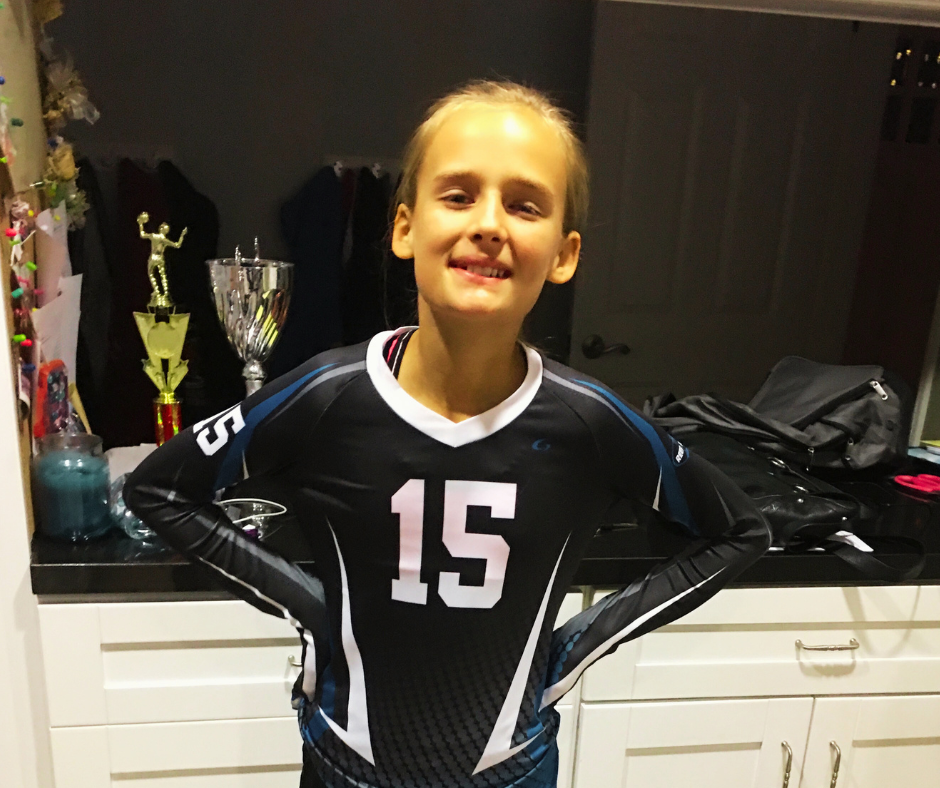
My daughter’s perfect club volleyball career ended last week
It didn’t end the way I imagined
I’m glad I didn’t realize at the time that it would be her last club volleyball game. I bet I would have cried…a lot. I thought she would be playing in one more tournament, but she got injured in-between, so her last club game wasn’t really a thing.
But now, now it’s hitting me that she is done with club volleyball forever. She will play for high school and beach, but her club chapter is over. She has been with this team or some form of it, for the entire time – more than six years.
When your child finishes a sport, even if they are still playing other sports, a part of you dies. It has to. I know that sounds dramatic and heavy, but it’s true. We give so much time, energy, and love supporting our kids’ passions, whatever they might be, that I think it’s normal to feel this way. It means it mattered.
It was messy
Our club journey was not a simple, one-note experience that I can summarize into a sweet little blog post. It was a rollercoaster of highs and lows, real-life challenges, frustrations, injuries, stress, and countless moments of laughter. It was messy, but that’s what made it perfect. That is exactly why it is perfect, and I wouldn’t want it any other way.
Youth sports are messy and hard. And our kids don’t always make the team they want, have the friends they want on their teams, get the coach they want, or get the results they want. They lose. They play poorly. Their confidence gets shaken. They feel frustrated, sad, and discouraged. But then they work through it. They find their way. They grow. They feel connected, accomplished, resilient, strong, and capable and then it cycles back again from the beginning. That is what youth sports are all about.
Youth sports are a microcosm of real life, and real life is messy and full of highs and lows and the perfection is in the opportunity. So many opportunities in club sports to practice all these great life skills.
Parents are also on a journey
The parents are on the journey too. We travel the country, spending countless weekends and too many hours together to even add up. The other parents become like family.
We share drinks, Advil, hairbands, rides, and water bottles. We pick each other up, occasionally pick each other apart, and pick up the slack when we need each other. Just like a real family.
In the beginning, we shared many of the same hopes and dreams, and then we didn’t. We saw kids and families come and go; some we welcomed with open arms, some we felt a great loss for when they left, and some we barely got to know.
What I learned
Now, as it comes to an end, I look around during our season wrap party, and there are many new faces this year. Only a few have been with us almost from the beginning. I will miss them. And I think to myself—I really like these people, and I feel so incredibly grateful they have been a part of my daughter’s (perfect) messy journey.
As I close the door to this chapter, here are a few big-picture takeaways:
1. Don’t wait to get to know the coach and parents on a deeper level. Always have a season kick-off party and include the parents. Don’t wait until the end of the season. The other parents and the coach are our allies and we need to start forming a bond from the jump. Parents need to stop keeping each other at arm’s length and competing with each other. Share information about trainers and camps and great snacks. Coaches let the parents in, don’t fear us or avoid us. It’s a crazy journey, and none of us really know what we are doing, but together, we can be a force. We all want our kids to have the best experience possible. We do this by being on the same page, communicating, and trusting each other.
2. Value everyone – not just the top players. I have seen too many kids lose their confidence and eventually quit the sport or team because they didn’t feel valued. Every player adds something. Find out what that is and encourage them. Most of us just want to be seen, heard, and recognized as being part of something bigger than us. This isn’t just on the coaches; although they have the biggest role, but the kids and parents can also help with this and support and encourage each other.
3. Your team is like a second family, so lead with compassion before competition. Over the years, our team has had players and coaches going through tough times and also really good times. Be aware and thoughtful about both, but especially the hard times. Everyone is dealing with something. The kid struggling with her serve may have parents going through a divorce and is having a hard time focusing. The coach, who seems extra stressed and yelling more than usual, may be caring for a sick parent. It’s vital to remember that it’s just a game. Our children succeed when we prioritize humanity and empathy, even as we compete and strive for greatness. When you’re part of a team, everyone—parents, coaches, and kids—contributes to raising our children and shaping them into adults. So be a good human above and beyond all else, including winning and playing time!
Want more information on raising happy, healthy, and successful athletes? Check out these similar articles:
22 Thing You Can Do Today To Be a Better Sports Parent











